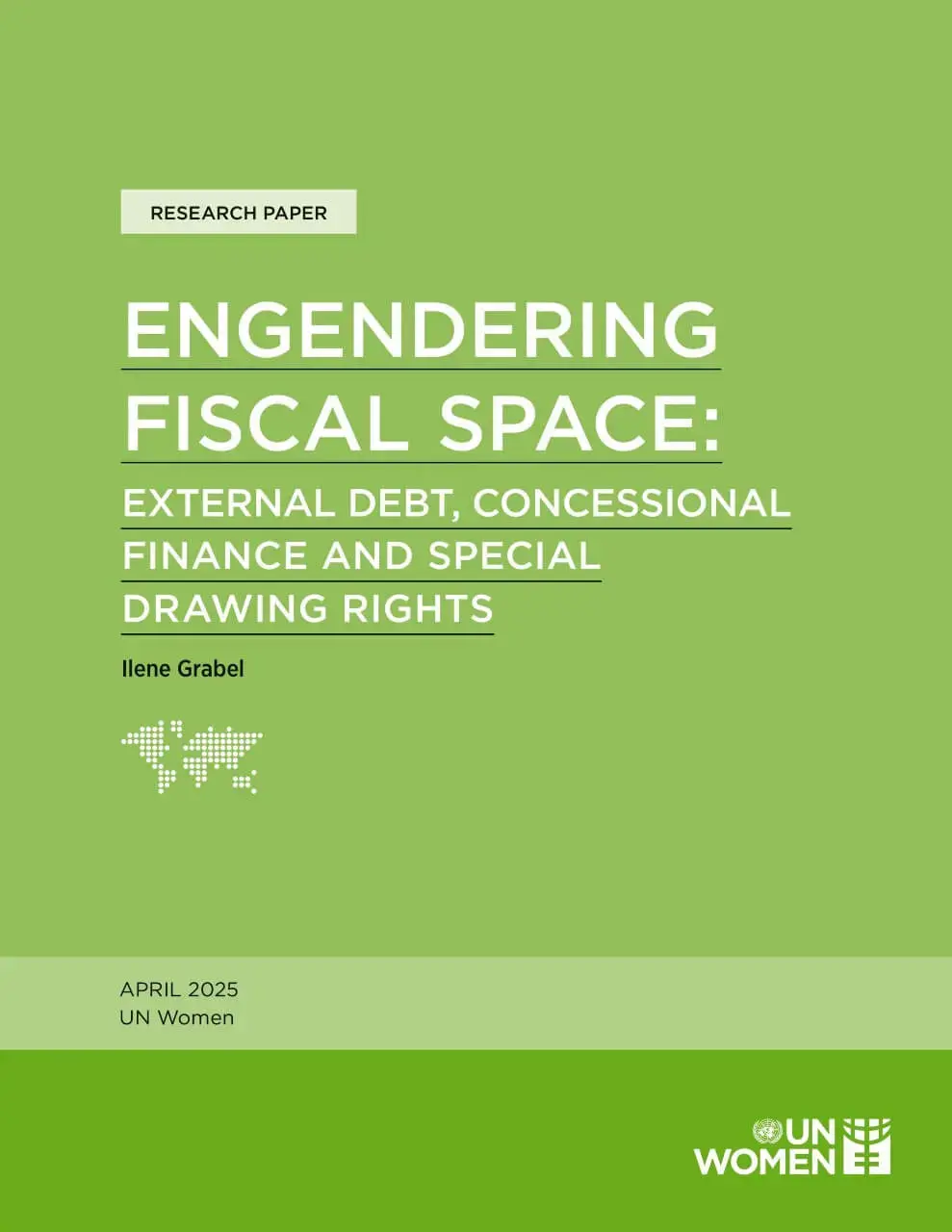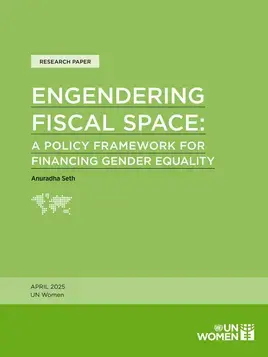
Engendering fiscal space: External debt, concessional finance and special drawing rights
This paper examines how external financial flows influence fiscal space and its implications for gender equality, particularly amid the unfolding debt crisis in the Global South. The paper highlights how external debt and limited access to concessional finance restrict fiscal space, disproportionately burdening women and vulnerable groups through reduced social spending and hindering investments in growth and gender equality.
The paper critiques conventional debt sustainability definitions, advocating for a Keynesian, feminist, and developmentalist perspective that prioritizes long-term impacts, especially those related to gender equality. The paper explores strategies to alleviate external debt burdens, including innovative debt sustainability assessments, sovereign debt restructuring, debt cancellation, and pauses. It also discusses enhancing access to concessional finance and leveraging special drawing rights (SDRs) as a debt-free financial resource.
Furthermore, the paper proposes gender-responsive approaches to external finance, such as SDR reallocation for gender equity, gender-responsive impact assessments, gender markers in debt restructuring, debt swaps for gender equality, and gender bonds.
Ultimately, the paper calls for comprehensive, multilateral action and political will to address the debt crisis and expand fiscal space, emphasizing that engendering fiscal space is vital for achieving Sustainable Development Goal 5 (Achieve gender equality and empower all women and girls) and fostering a more equitable global economy.


